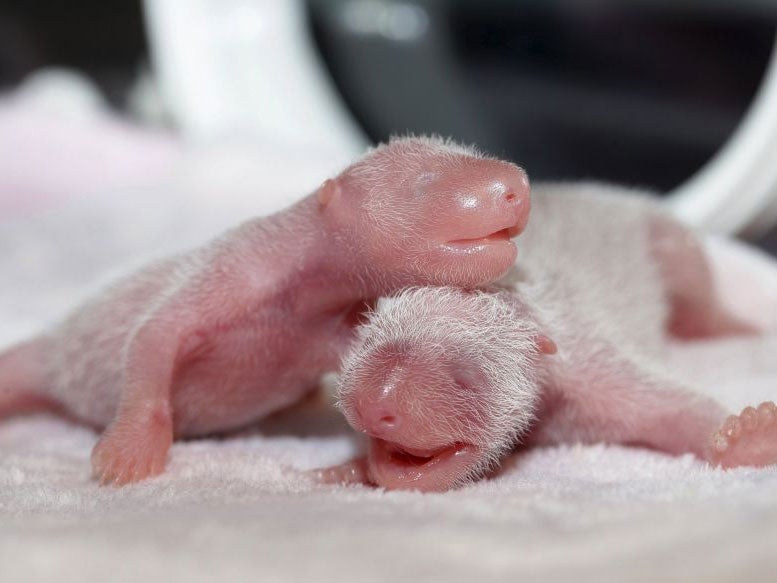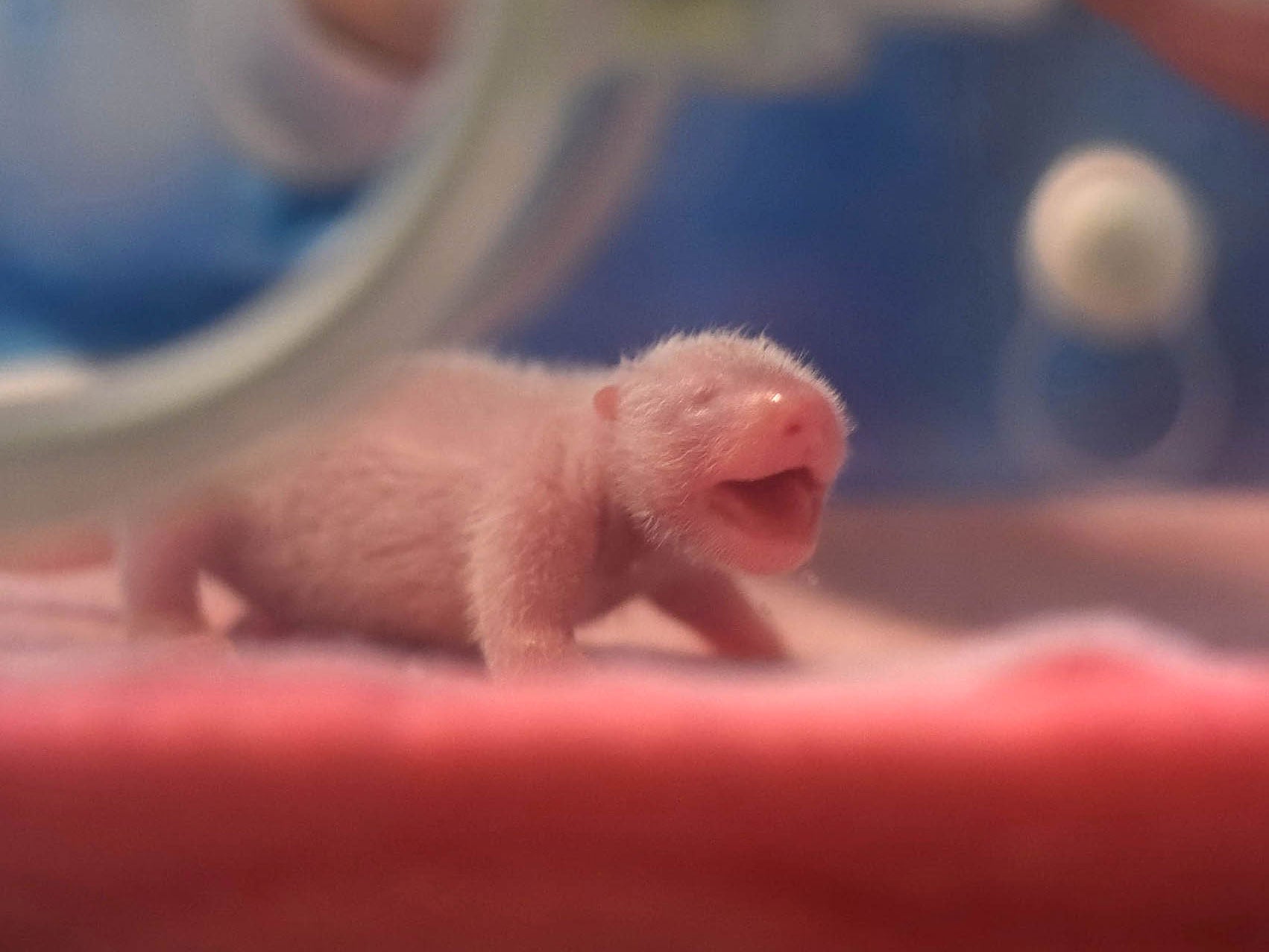Twin baby pandas born in China after mother artificially inseminated
Researchers are trying to increase the population of the endangered species

Your support helps us to tell the story
From reproductive rights to climate change to Big Tech, The Independent is on the ground when the story is developing. Whether it's investigating the financials of Elon Musk's pro-Trump PAC or producing our latest documentary, 'The A Word', which shines a light on the American women fighting for reproductive rights, we know how important it is to parse out the facts from the messaging.
At such a critical moment in US history, we need reporters on the ground. Your donation allows us to keep sending journalists to speak to both sides of the story.
The Independent is trusted by Americans across the entire political spectrum. And unlike many other quality news outlets, we choose not to lock Americans out of our reporting and analysis with paywalls. We believe quality journalism should be available to everyone, paid for by those who can afford it.
Your support makes all the difference.Twin baby pandas have been born in China after their mother was artificially inseminated as part of efforts to ensure their survival.
The tiny animals were shown to members of the public for the first time on Tuesday, still mostly hairless and bright pink.
The newborn sisters were just a day old and kept their eyes tightly shut, stumbling around their incubator and huddling together in a pile.

The new arrivals were a boost for the Chengdu Research Base of Giant Panda Breeding, which is aiming to increase the panda population until they can be reintroduced to the wild and left to breed naturally.
Wu Kongju, the chief administrator, said the twins were in good condition based on their milk consumption and normal body temperature.
Their mother, seven-year old Kelin, gave birth to the babies weighing just 118g and 70g each on Monday, after being artificially inseminated in January.
They are the world's first set of panda twins born in 2015, Chinese state media reported.
Giant pandas were once spread through China, Vietnam and Burma but are now endangered, with only 1,800 animals believed to remain in the wild.
Additional reporting by AP
Join our commenting forum
Join thought-provoking conversations, follow other Independent readers and see their replies
Comments